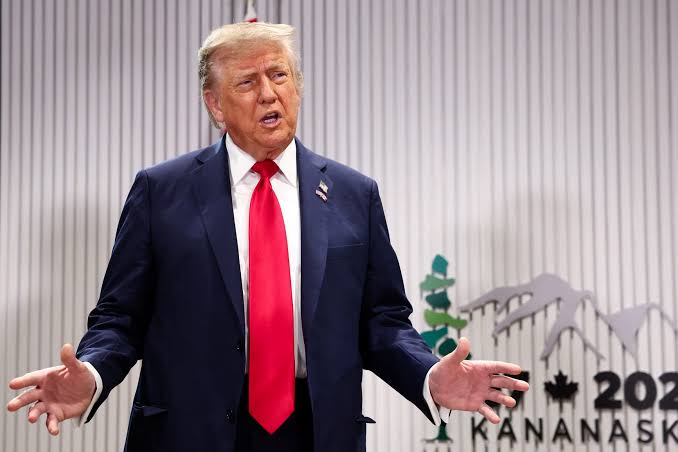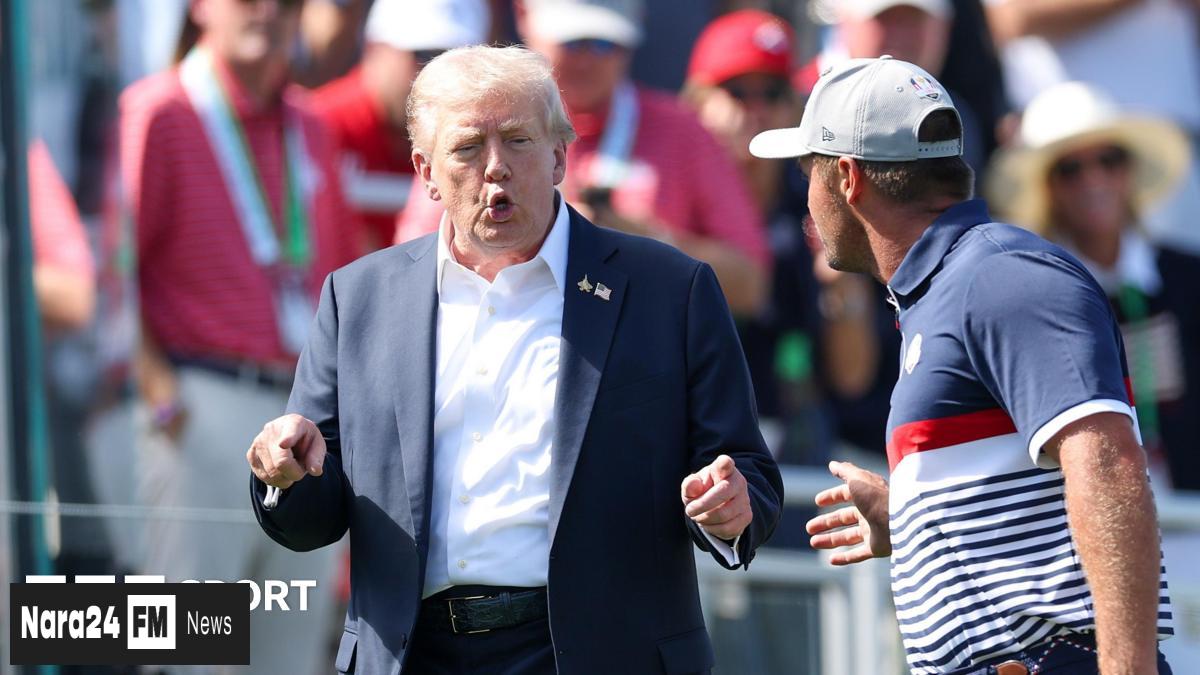In This Article
- Escalating With Netanyahu
- Holding the Course
- Yielding to MAGA Pressure
Key Takeaways
- President Trump's approach to the Israel-Iran conflict is marked by unpredictability, oscillating between endorsing Israeli strikes and distancing the U.S.
- Trump faces pressure from Netanyahu and Republican hawks to escalate military action against Iran, despite his preference for a bilateral deal.
- The 'madman theory' is being advocated by some advisers, suggesting that unpredictability could coerce Iran into compliance.
- Trump's current stance of non-involvement in Israel's offensive reflects caution from National Security Council advisors to avoid a broader war.
- Domestic political pressure from the MAGA movement complicates Trump's strategy, with some urging him to reduce U.S. involvement in the conflict.
President Trump's abrupt departure from the G7 summit in Canada has intensified scrutiny of his approach to the spiraling Israel-Iran conflict. While the White House initially cited "what's going on in the Middle East" for his exit, Trump later contradicted this on Truth Social, claiming it had "nothing to do with a Cease Fire." His public stance has oscillated between endorsing Israeli strikes and distancing the U.S., fueling uncertainty as Prime Minister Benjamin Netanyahu insists operations are "fully coordinated" with Washington. Below, we analyze Trump's three primary options amid the crisis.
1. Escalating With Netanyahu
Trump faces mounting pressure from Netanyahu and Republican hawks to intensify military action against Iran. During Thursday's Israeli strikes on Tehran, he warned Iran's leaders of "even more brutal" attacks from their U.S.-armed ally. Though Trump shares Netanyahu's goal of preventing an Iranian nuclear weapon, he diverges by preferring a bilateral deal—a stance aligning with his self-styled "deal-maker" image. Yet his strategy remains erratic, blending threats of force with diplomatic overtures. Last week, he ambiguously claimed an Israeli strike could either facilitate negotiations or "blow" them apart.
Advisers advocating the "madman theory"—a Cold War-era tactic attributing strategic value to unpredictability—argue maximum pressure could coerce Iran into compliance. However, Tehran had already engaged diplomatically before talks collapsed; a sixth-round meeting with U.S. envoy Steve Witkoff was scrapped amid hostilities. Netanyahu is also privately urging the use of U.S. "bunker buster" bombs to destroy Iran's Fordow enrichment site, a move that would cement American involvement.
2. Holding the Course
Currently, Trump insists the U.S. is "not involved" in Israel's offensive, a position reflecting caution from National Security Council advisors. Escalation carries high-stakes risks: U.S. missile defenses in Israel have already been tested by Iranian retaliatory strikes, some breaching defenses with deadly results. While Netanyahu contends that targeting Supreme Leader Ali Khamenei could end the conflict, unnamed U.S. officials indicate Trump opposes such strikes. This middle path seeks to avoid triggering a broader war that could define his presidential legacy.
China Positions Itself as a Peace Broker Amid Escalating Israel-Iran Conflict
In the wake of escalating tensions between Israel and Iran,...
Read more3. Yielding to MAGA Pressure
Domestic politics complicate Trump's calculus. Influential voices within his "Make America Great Again" movement, including commentator Tucker Carlson and Representative Marjorie Taylor Greene, oppose traditional U.S. backing for Israel. Carlson recently condemned the administration’s "America First" contradiction, urging Trump to "drop Israel" and accusing Netanyahu of dragging Washington into war. Greene echoed this on social media, stating support for full U.S. engagement contradicts MAGA principles.
This faction represents a vulnerability for Trump, pressuring him to align with his base's isolationist instincts rather than congressional Republicans who overwhelmingly endorse military aid to Israel. As tensions mount, these divisions could force a strategic retreat to safeguard his reelection prospects.
Source: BBC News (adapted)








Comments (0)
Leave a Comment
Be the first to comment on this article!